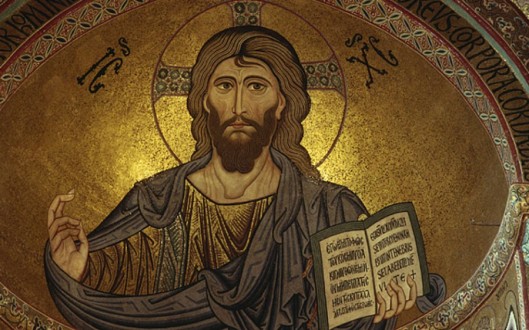Tags

Newman described well the type of Christian who is so worried about ‘Judgement’ that she never shares the joy of knowing Christ, so conscious of her sins that she cannot take pleasure in her Christianity. The passage which I quoted yesterday is not only a warning to me (as I have pronounced tendencies that way) but also has wider application.
One of the things often commented upon by anti-Christian polemicists is just that tendency to be concerned with judging others which can come from judging ourselves. Jesus Himself asked how we could love God, whom we did not know, if we did not love our brother whom we did? If we hate ourself, how can we love others? What, after all, is love, save that which emanates from the mystery of the Economy of the Trinity?
The most startling insight of Christianity is not the revelation that God is one, but that He is Three. The Jews, and now the Muslims, hold the first belief; Christians alone hold the latter. When St. John tells us that ‘God is love’, he describes the relationship of the Persons of the Holy Trinity.
The only distinction between the persons of the Trinity is their mutual relations. None of the persons exists in respect to Himself alone, but each exists relatively to the other two:
…the “three persons” who exist in God are the reality of word and love in their attachment to each other. They are not substances, personalities in the modern sense, but the relatedness whose pure actuality… does not impair unity of the highest being but fills it out. St Augustine once enshrined this idea in the following formula: “He is not called Father with reference to himself but only in relation to the Son; seen by himself he is simply God.” Here the decisive point comes beautifully to light. “Father” is purely a concept of relationship. Only in being-for the other is he Father; in his own being-in-himself he is simply God. Person is the pure relation of being related, nothing else. Relationship is not something extra added to the person, as it is with us; it only exists at all as relatedness.
….the First Person [the Father] does not beget the Son in the sense of the act of begetting coming on top of the finished Person; it is the act of begetting, of giving oneself, of streaming forth. It is identical with the act of giving.
(Joseph Ratzinger Introduction to Christianity, pp. 131-132; cf. Augustine, ; De Trinitate VII, 1, 2.)
In short, each of the persons of the Trinity lives completely for the others; each is a complete gift of self to the others. The complete self-giving not only constitutes the individual persons of the Trinity, but also their inseparable oneness.
That love, it was which impelled him to take action to help his creatures gone astray so when the time had fully come, God sent forth his Son, born of woman to redeem us and make us sons by adoption. If He loves us, let us love ourself too.

The Trinity is a mystery. Beware of mental speculations about the Trinity.
LikeLiked by 2 people
A mystery doesn’t mean we cannot know anything about it; it just means we cannot know everything about it.
LikeLiked by 2 people